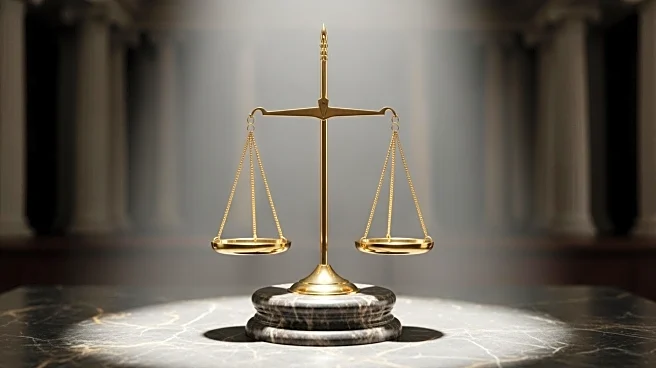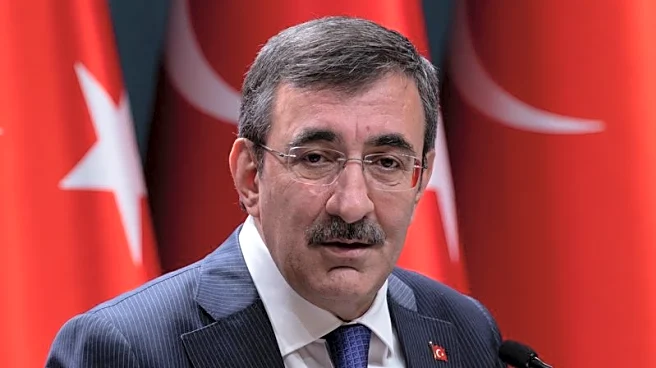What is the story about?
What's Happening?
Justice Clarence Thomas of the U.S. Supreme Court has expressed skepticism about the reliance on legal precedents, suggesting that some may not be as authoritative as traditionally believed. Speaking at the Catholic University of America’s Columbus School of Law, Thomas emphasized that precedents should be grounded in the legal tradition and not merely accepted without scrutiny. His comments come as the Supreme Court prepares for its new term starting October 6, where it will address significant cases, including a potential challenge to the 2015 Obergefell decision that legalized same-sex marriage nationwide. Thomas, part of the conservative supermajority established during President Trump's terms, has previously called for a reevaluation of substantive due process precedents, including those related to contraception and same-sex intimacy.
Why It's Important?
Justice Thomas's remarks highlight a potential shift in how the Supreme Court may approach established legal precedents, which could have far-reaching implications for U.S. law and society. If the Court decides to overturn or modify key decisions like Obergefell, it could affect the rights of same-sex couples and other groups whose rights have been protected under similar precedents. This approach could also influence future rulings on contentious issues such as abortion, religious rights, and campaign finance. The conservative supermajority's willingness to reconsider past decisions underscores the evolving dynamics within the Court and its impact on American jurisprudence.
What's Next?
As the Supreme Court's new term begins, attention will be focused on how the justices, particularly the conservative majority, will handle cases that challenge established precedents. Stakeholders, including civil rights organizations and political leaders, are likely to respond to any significant shifts in legal interpretations. The outcomes of these cases could prompt legislative actions or further legal challenges, depending on the Court's decisions. Observers will be watching closely to see if Justice Thomas's views influence the Court's approach to precedent and how this might reshape the legal landscape in the United States.
Beyond the Headlines
Justice Thomas's comments also raise questions about the role of judicial philosophy in shaping legal outcomes. His critique of precedent as potentially arbitrary suggests a broader debate about the balance between legal stability and adaptability. This could lead to discussions about the ethical responsibilities of justices to consider the societal impact of overturning long-standing decisions. The potential for significant legal shifts may also prompt public discourse on the role of the judiciary in reflecting or challenging societal values.

















